
Sucre - The White City of Bolivia
Sucre, the constitutional capital of Bolivia, is a city steeped in history and brimming with charm. Often referred to as the 'White City' due to its well-preserved white-washed buildings, Sucre offers a harmonious blend of colonial architecture, vibrant culture, and lush green landscapes. Nestled in a valley surrounded by low mountains, its moderate climate makes it an ideal destination year-round. Strolling through Sucre's streets, you will encounter a plethora of historical sites, such as the Casa de la Libertad, where Bolivia's declaration of independence was signed. The city is also home to the stunning Metropolitan Cathedral and the San Felipe Neri convent, both examples of the city's rich colonial past. For a panoramic view of Sucre, head to La Recoleta, a historical site perched on a hill offering breathtaking views of the city below. Sucre is not just about history and architecture; it is a city that celebrates life with its lively markets, traditional festivals, and bustling plazas. Visit the Central Market for a taste of local cuisine, or explore the Parque Bolívar for a relaxing afternoon amidst beautiful gardens. For those interested in prehistoric wonders, the nearby Cal Orck'o site boasts one of the largest collections of dinosaur footprints in the world. Whether you are a history buff, a nature lover, or someone looking to immerse in local culture, Sucre has something to offer. Its friendly locals, rich traditions, and stunning scenery make it a must-visit destination in Bolivia.
Local tips in Sucre
- Wear comfortable shoes as Sucre's cobbled streets and hilly terrain can be challenging.
- Visit the local markets early in the morning for the freshest produce and best bargains.
- Take a Spanish language class in one of Sucre's many language schools to enhance your experience.
- Make sure to carry cash, as many smaller vendors and markets do not accept credit cards.
- Try the traditional dish 'Salteñas' for a delicious and authentic Bolivian snack.
Neighbourhoods in Sucre
Sucre - The White City of Bolivia
Sucre, the constitutional capital of Bolivia, is a city steeped in history and brimming with charm. Often referred to as the 'White City' due to its well-preserved white-washed buildings, Sucre offers a harmonious blend of colonial architecture, vibrant culture, and lush green landscapes. Nestled in a valley surrounded by low mountains, its moderate climate makes it an ideal destination year-round. Strolling through Sucre's streets, you will encounter a plethora of historical sites, such as the Casa de la Libertad, where Bolivia's declaration of independence was signed. The city is also home to the stunning Metropolitan Cathedral and the San Felipe Neri convent, both examples of the city's rich colonial past. For a panoramic view of Sucre, head to La Recoleta, a historical site perched on a hill offering breathtaking views of the city below. Sucre is not just about history and architecture; it is a city that celebrates life with its lively markets, traditional festivals, and bustling plazas. Visit the Central Market for a taste of local cuisine, or explore the Parque Bolívar for a relaxing afternoon amidst beautiful gardens. For those interested in prehistoric wonders, the nearby Cal Orck'o site boasts one of the largest collections of dinosaur footprints in the world. Whether you are a history buff, a nature lover, or someone looking to immerse in local culture, Sucre has something to offer. Its friendly locals, rich traditions, and stunning scenery make it a must-visit destination in Bolivia.
When is the best time to go to Sucre?
Iconic landmarks you can’t miss
Simon Bolivar Park
Experience the tranquility and cultural vibrancy of Simon Bolivar Park, a lush green escape in the heart of Sucre, Bolivia.

Parque Cretácico
Experience the thrill of the Cretaceous era at Parque Cretácico, where history meets excitement in the heart of Bolivia's breathtaking landscapes.

Freedom House
Explore Bolivia's rich history at Freedom House, a national museum in Sucre showcasing independence artifacts, local crafts, and cultural events.

Glorieta Castle
Explore the exquisite Glorieta Castle, a captivating blend of Gothic and Renaissance architecture nestled in the scenic landscape of Sucre, Bolivia.

Joy Ride Cafe
Discover Joy Ride Cafe in Sucre: A dynamic restaurant and bar offering a fusion of local and international flavors in a cozy atmosphere.
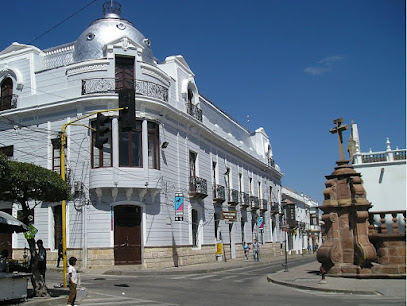
Iglesia de San Felipe de Neri
Discover the architectural beauty and rich history of Iglesia de San Felipe de Neri, a must-visit Catholic church in Sucre, Bolivia.

La Taverne Sucre
Experience authentic French cuisine in Sucre at La Taverne Sucre, where local ingredients meet classic culinary traditions for a unique dining adventure.
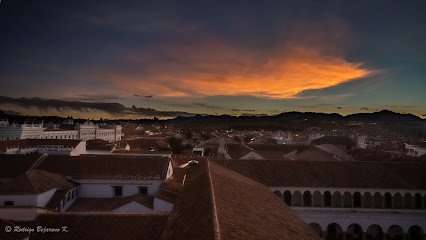
Origins Cultural Space
Discover the essence of Bolivian culture at Origins Cultural Space in Sucre, where art, music, and gastronomy intertwine.

Treasure Museum
Explore the Treasure Museum in Sucre to unveil Bolivia's rich mining history and cultural treasures through stunning exhibits and engaging displays.

Church of Saint Francis
Discover the architectural beauty and serene atmosphere of the Church of Saint Francis, a historical gem in Sucre, Bolivia, rich in culture and spirituality.

Cathedral Basilica of Our Lady of Guadalupe
Explore the architectural splendor and spiritual essence of the Cathedral Basilica of Our Lady of Guadalupe in Sucre, a true gem of Bolivian culture.

Monasterio de La Recoleta
Explore the serene beauty and rich history of Monasterio de La Recoleta, a spiritual sanctuary in Sucre that captivates every visitor.

Museo de Arte Indígena
Explore the vibrant expressions of Bolivia's indigenous culture at the Museo de Arte Indígena in Sucre, a center for art and heritage.

La Rotonda
Discover the charm of Sucre at La Rotonda, a scenic park blending nature, culture, and community in Bolivia's historic capital.

Fuente del Bicentenario
Discover the beauty and history of Fuente del Bicentenario in Sucre, a stunning fountain symbolizing Bolivia's independence and a perfect spot for relaxation.

Unmissable attractions to see
Simon Bolivar Park
Discover the tranquil charm of Simon Bolivar Park in Sucre, where nature meets history and vibrant local culture.

Freedom House
Discover Bolivia's rich history and cultural heritage at Freedom House, a national museum in Sucre that celebrates the nation's fight for independence.

Church of San Felipe de Neri
Explore the architectural beauty and spiritual heritage of the Church of San Felipe de Neri in Sucre, Bolivia's historical capital.
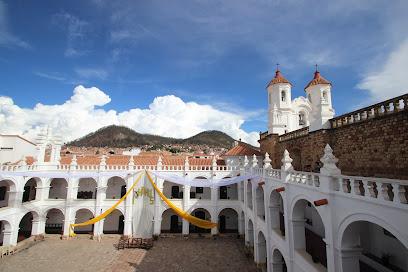
Guereo Mansion
Explore Guereo Mansion, a historical gem in Sucre, Bolivia, where rich heritage and stunning architecture await your discovery.
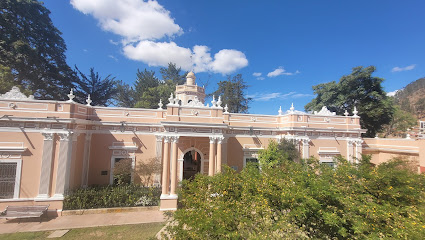
Iglesia de San Felipe de Neri
Discover the beauty and history of Iglesia de San Felipe de Neri, a stunning Catholic church in Sucre, Bolivia, showcasing exquisite colonial architecture.
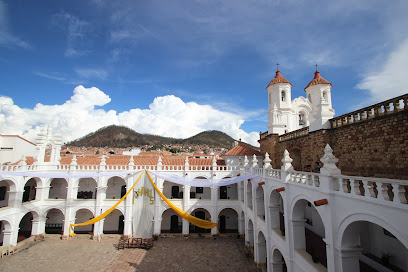
Origins Cultural Space
Explore the dynamic Origins Cultural Space in Sucre, a hub for Bolivian art, music, and community, celebrating local heritage and creativity.
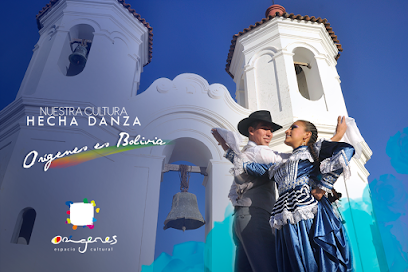
Treasure Museum
Explore Bolivia's mining legacy at the Treasure Museum in Sucre—an enriching experience showcasing the nation's historical treasures.
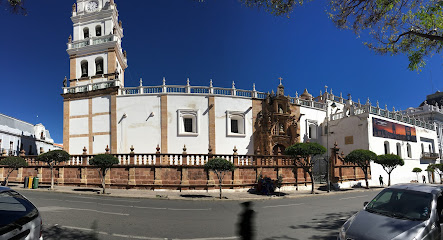
Bicentenario Park
Experience the serene beauty and vibrant culture of Bicentenario Park in Sucre, a perfect escape for relaxation and leisure amid lush greenery.
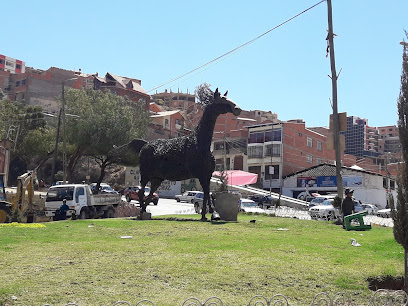
Church of Saint Francis
Discover the Church of Saint Francis in Sucre, a beautiful museum blending rich history and stunning architecture in Bolivia's cultural heart.
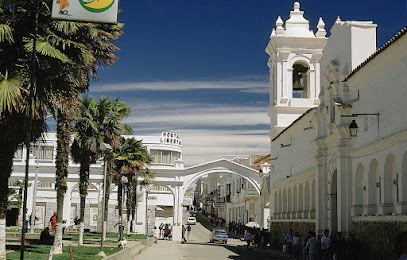
Florida Mansion
Explore the stunning Florida Mansion in Sucre, a captivating museum showcasing Bolivia's rich history and exquisite colonial architecture.
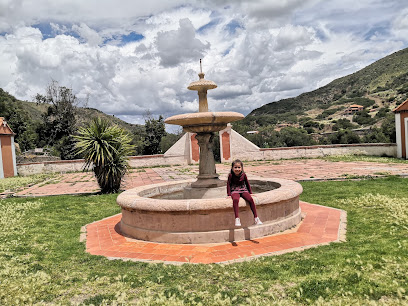
Museo de Arte Indígena
Uncover the vibrant heritage of Bolivia at the Museo de Arte Indígena in Sucre, showcasing indigenous art and culture.
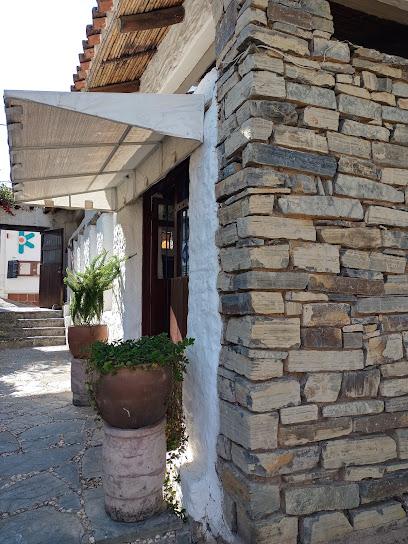
Cathedral Basilica of Our Lady of Guadalupe
Discover the stunning Cathedral Basilica of Our Lady of Guadalupe, a breathtaking architectural gem and spiritual landmark in Sucre, Bolivia.
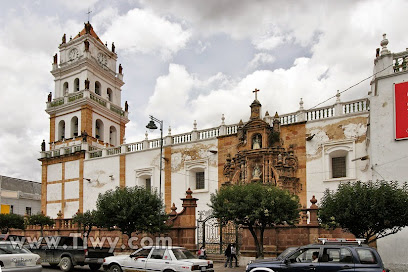
Museo de Arte Indígena
Explore the vibrant indigenous art and culture of Bolivia at Museo de Arte Indígena in Sucre, a unique cultural center and museum.

La Rotonda
Experience the tranquility of La Rotonda, a lush park in Sucre, where nature meets culture in a stunning urban oasis.
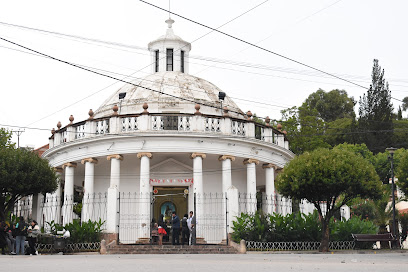
Museo Colonial Charcas U. S. F. X.
Explore Bolivia's colonial history at Museo Colonial Charcas, a must-visit museum in Sucre showcasing rich cultural heritage and historical artifacts.
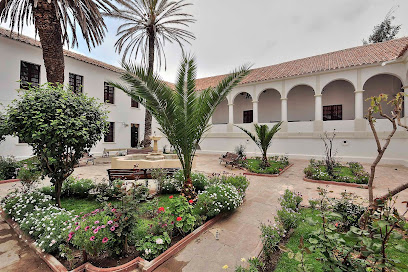
Essential places to dine
Joy Ride Cafe
Experience the heart of Sucre at Joy Ride Cafe—where local flavors meet international cuisine in a vibrant atmosphere.

Metro Café
Discover the flavors of Bolivia at Metro Café in Sucre—your go-to spot for delightful breakfasts and aromatic coffees.
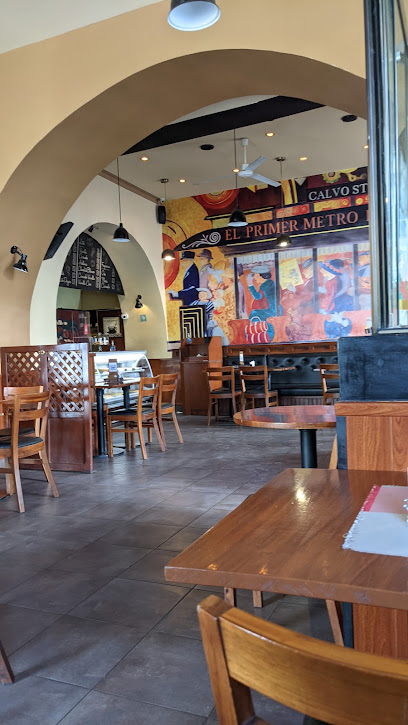
Cosmo Café Restaurant
Experience exquisite dining at Cosmo Café Restaurant in Sucre - where local flavors meet international cuisine in a charming setting.

Pueblo Chico
Discover Pueblo Chico in Sucre: A delightful grill restaurant offering an exquisite blend of flavors with live piano music for an unforgettable dining experience.

Salteñeria El Patio
Discover the essence of Bolivian cuisine at Salteñeria El Patio - your go-to spot for authentic salteñas in Sucre.
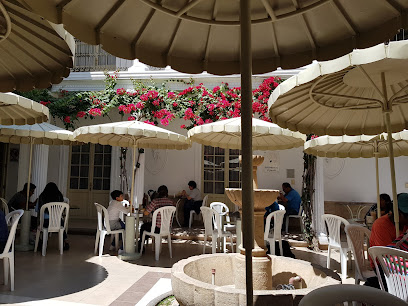
Cafe Restaurant Florin
Discover the culinary charm of Café Restaurant Florin in Sucre, where Bolivian flavors meet Dutch cuisine in a cozy atmosphere.

La Taverne Sucre
Savor authentic French flavors at La Taverne Sucre, where culinary excellence meets charming ambiance in Bolivia's historic capital.

El Huerto
Discover authentic Bolivian cuisine at El Huerto in Sucre – where fresh ingredients meet tradition in every dish.

WASY MAMA
Experience the heart of Bolivian cuisine at Wasy Mama in Sucre - where tradition meets flavor in every dish.
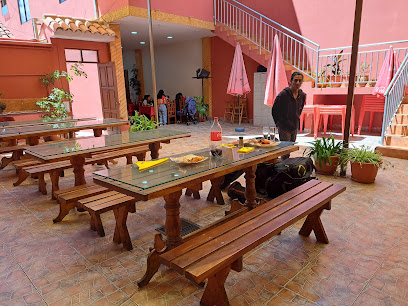
LAS FLAMAS
Experience authentic Bolivian cuisine at Las Flamas in Sucre—where vibrant flavors meet inviting atmosphere.
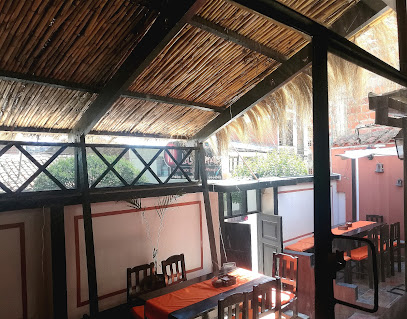
Restaurante Nativa
Experience authentic Bolivian cuisine at Restaurante Nativa in Sucre - where native ingredients meet culinary creativity.
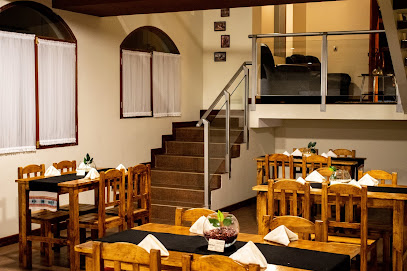
Bienmesabe
Discover authentic Bolivian flavors at Bienmesabe in Sucre – a culinary journey through tradition and taste.
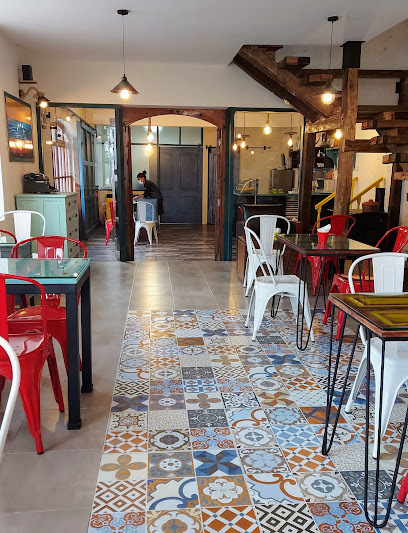
Kaiseki sushi Restaurant
Experience authentic Japanese cuisine at Kaiseki Sushi Restaurant in Sucre - where fresh ingredients meet culinary artistry.
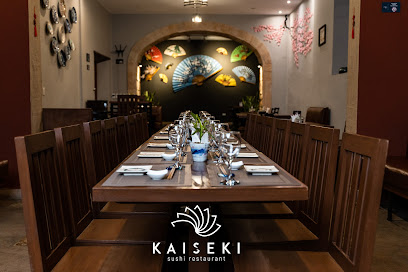
restaurant choriceria Doña Natty
Discover authentic Bolivian cuisine at Choriceria Doña Natty in Sucre—home of delicious choripán and traditional dishes.
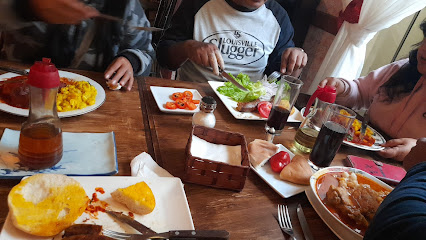
Papavero ristorante e pizzeria
Discover authentic Italian flavors at Papavero Ristorante e Pizzeria in Sucre - where every meal is a celebration of taste.
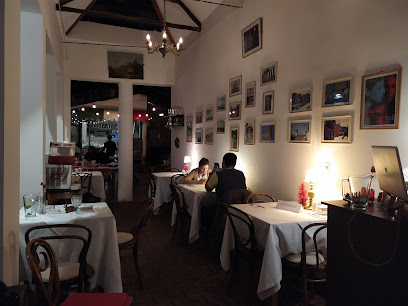
Markets, malls and hidden boutiques
Gold Store
Discover the youthful spirit of Sucre at the Gold Store, offering trendy clothing and a vibrant shopping atmosphere for every fashion enthusiast.
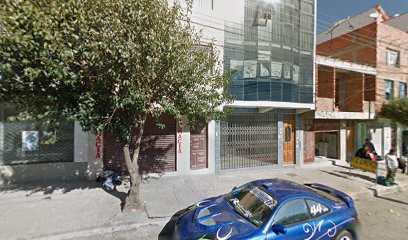
Mayis Store
Explore Mayis Store for unique fashion accessories, enchanting gifts, and authentic Bolivian treasures in the heart of Sucre.

Lud Regalos y Detalles
Discover the sweet side of Sucre at Lud Regalos y Detalles, your go-to destination for chocolates and unique gifts.

Tienda de Niños Valeria
Discover a charming children's clothing store in Sucre, Tienda de Niños Valeria, offering stylish outfits and accessories for your little ones.
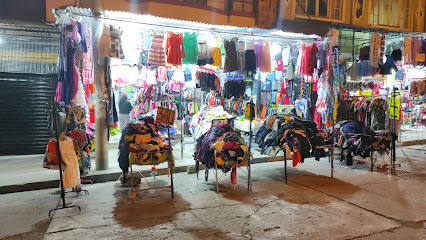
Happy Shop
Explore Happy Shop in Sucre for unique Bolivian souvenirs and gifts, showcasing local craftsmanship and cultural heritage.

Unique Store
Explore Unique Store in Sucre for quality clothing and authentic Bolivian souvenirs that embody the local culture and craftsmanship.
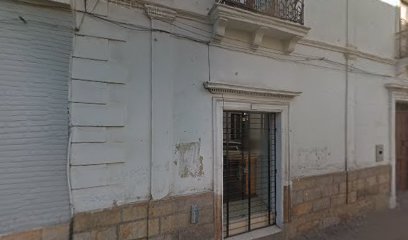
Tienda S
Explore Tienda S in Sucre – your destination for unique Bolivian gifts and handcrafted treasures that celebrate local culture.
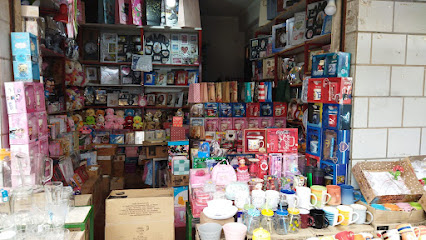
Katrina Shop
Explore Katrina Shop in Sucre, Bolivia for unique lingerie and fashion accessories that blend local charm with contemporary style.
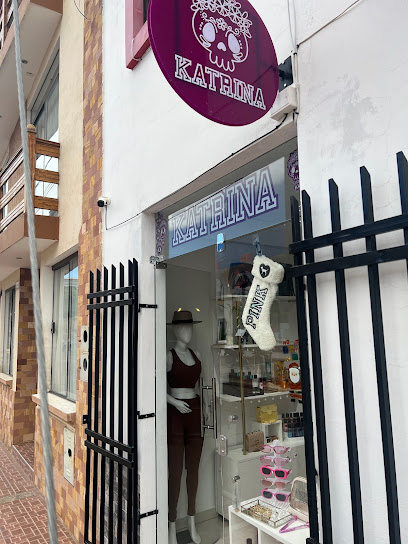
Casaluxe Store
Explore Casaluxe Store in Sucre for unique gifts and local crafts that embody Bolivian culture and artistry.
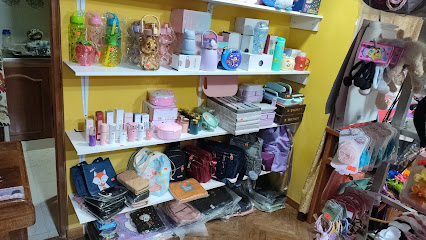
CrushCulture.bo
Discover the sweet side of Sucre at CrushCulture.bo, your go-to gift and dessert shop for local flavors and unique treasures.
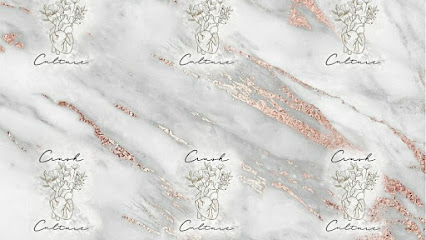
Andy's Shops
Discover unique Bolivian fashion at Andy's Shops, where local craftsmanship meets contemporary style in the heart of Sucre.
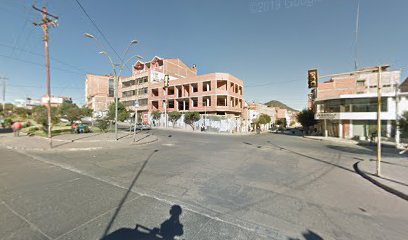
BRUMAT, Sucre, Bolivia
Explore BRUMAT in Sucre, Bolivia for authentic gifts and crafts that embody the spirit and artistry of Bolivia's rich culture.
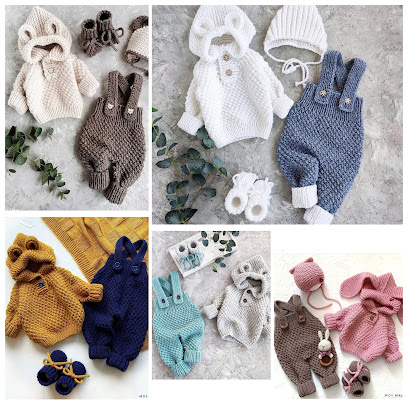
WiyMe Store
Explore WiyMe Store in Sucre for unique Bolivian gifts and artisanal treasures that capture the essence of local culture and craftsmanship.

Beast world shop
Explore the vibrant styles of Sucre at Beast World Shop, a trendy clothing store offering unique fashion pieces and accessories.
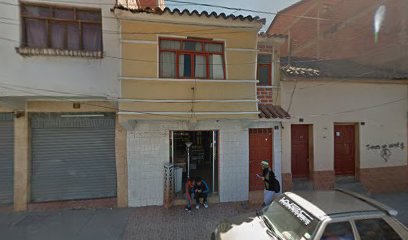
Algo Bonito
Explore Algo Bonito in Sucre for unique handcrafted gifts and souvenirs that embody the spirit of Bolivia's rich culture.
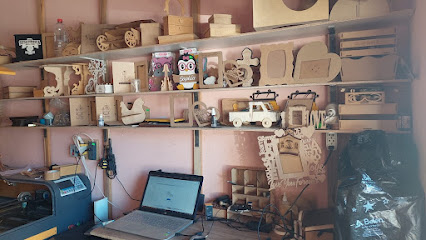
Essential bars & hidden hideouts
Joy Ride Cafe
Discover the charm of Sucre at Joy Ride Cafe, where delicious food, refreshing drinks, and a vibrant atmosphere await travelers.

CAVENDISH Resto - Bar
Experience the flavors of Sucre at CAVENDISH Resto - Bar, where grilled specialties and local delights come together in a warm and inviting setting.

O´Finnigan´s Irish Pub
Discover the vibrant atmosphere of O´Finnigan´s Irish Pub in Sucre, where craft beers and live music create an unforgettable experience.

Malaba
Experience the fusion of tradition and innovation at Malaba, Sucre's premier gastropub, where every meal is a celebration of Bolivian flavors.

GOBLIN Bar y cervecería artesanal de la casa
Discover GOBLIN Bar, Sucre's renowned craft brewery, offering an extensive selection of house-made beers and a vibrant nightlife experience.

Master Bar
Experience the vibrant atmosphere of Master Bar in Sucre, where delightful drinks and delicious food come together to create unforgettable memories.
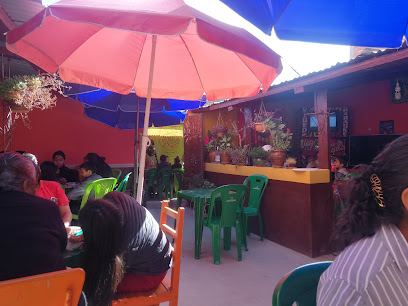
ROCKERZ HARD ROCK CAFE
Experience the electrifying atmosphere of Rockerz Hard Rock Cafe in Sucre, where live music meets delicious dining for an unforgettable night out.

búhoBAR
Discover the lively energy of búhoBAR in Sucre, where vibrant music, creative cocktails, and a fun atmosphere meet for an unforgettable night out.

Reset Bar Sucre
Dive into the vibrant nightlife of Sucre at Reset Bar, where karaoke, live music, and delicious drinks create the ultimate party atmosphere.

Klasicos Lounge
Experience the vibrant nightlife at Klasicos Lounge in Sucre, where cocktails and tapas meet a lively atmosphere for an unforgettable evening.

Rock & Voz
Discover the vibrant nightlife of Sucre at Rock & Voz, where great drinks and live music create an unforgettable experience.
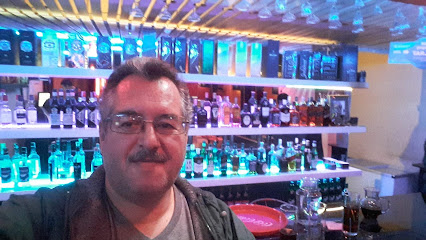
Bar Mecha
Experience the vibrant atmosphere and delightful drinks at Bar Mecha, Sucre's beloved social hub for tourists and locals alike.
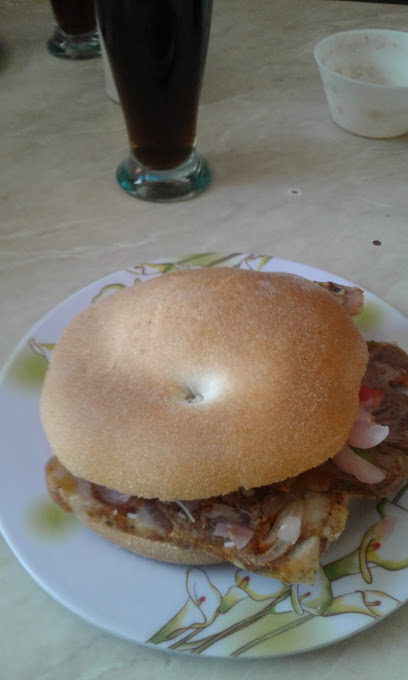
Valinor Restaurant Bar
Discover the lively Valinor Restaurant Bar in Sucre – where delicious food meets a vibrant nightlife experience.
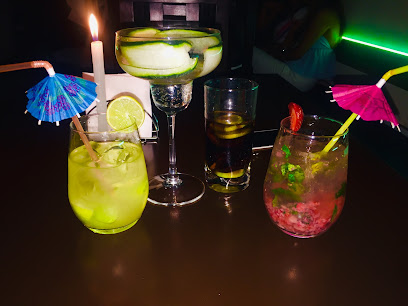
WICHO'S RestoBar
Experience the vibrant nightlife of Sucre at WICHO'S RestoBar, where karaoke meets great drinks and unforgettable fun.
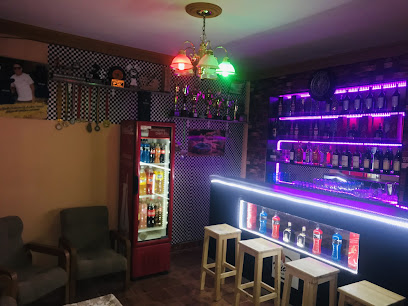
Local Phrases
-
- HelloHola
[oh-lah] - GoodbyeAdiós
[ah-dyohs] - YesSí
[see] - NoNo
[noh] - Please/You're welcomePor favor/De nada
[por fah-vohr/deh nah-dah] - Thank youGracias
[grah-syahs] - Excuse me/SorryDisculpe/Perdón
[dees-kool-peh/pehr-dohn] - How are you?¿Cómo estás?
[koh-moh ehs-tahs] - Fine. And you?Bien. ¿Y tú?
[byehn. ee too] - Do you speak English?¿Hablas inglés?
[ah-blahs een-glehs] - I don't understandNo entiendo
[noh ehn-tyen-doh]
- HelloHola
-
- I'd like to see the menu, pleaseMe gustaría ver el menú, por favor
[meh goos-tah-ree-ah behr ehl meh-noo, poor fah-vohr] - I don't eat meatNo como carne
[noh koh-moh kahr-neh] - Cheers!¡Salud!
[sah-loohd] - I would like to pay, pleaseMe gustaría pagar, por favor
[meh goos-tah-ree-ah pah-gahr, poor fah-vohr]
- I'd like to see the menu, pleaseMe gustaría ver el menú, por favor
-
- Help!¡Ayuda!
[ah-yoo-dah] - Go away!¡Fuera!
[fweh-rah] - Call the Police!¡Llame a la Policía!
[yah-meh ah lah poh-lee-see-ah] - Call a doctor!¡Llame a un médico!
[yah-meh ah oon meh-dee-koh] - I'm lostEstoy perdido
[ehs-toy pehr-dee-doh] - I'm illEstoy enfermo
[ehs-toy ehn-fehr-moh]
- Help!¡Ayuda!
-
- I'd like to buy...Me gustaría comprar...
[meh goos-tah-ree-ah kohm-prahr...] - I'm just lookingSolo estoy mirando
[soh-loh ehs-toy meer-ahn-doh] - How much is it?¿Cuánto cuesta?
[kwan-toh kwehs-tah] - That's too expensiveEsto es muy caro
[ehs-toh ehs mwee kah-roh] - Can you lower the price?¿Puede bajar el precio?
[pweh-deh bah-hahr ehl pree-syoh]
- I'd like to buy...Me gustaría comprar...
-
- What time is it?¿Qué hora es?
[keh oh-rah ehs] - It's one o'clockEs la una
[ehs lah oo-nah] - Half past (10)Media (10)
[meh-dyah (d'yeez)] - MorningMañana
[mah-nyah-nah] - AfternoonTarde
[tahr-deh] - EveningNoche
[noh-cheh] - YesterdayAyer
[ah-yehr] - TodayHoy
[oy] - TomorrowMañana
[mah-nyah-nah] - 1Uno
[oo-noh] - 2Dos
[dohs] - 3Tres
[trehs] - 4Cuatro
[kwah-troh] - 5Cinco
[seen-koh] - 6Seis
[sace] - 7Siete
[syeh-teh] - 8Ocho
[oh-choh] - 9Nueve
[nweh-veh] - 10Diez
[dyehs]
- What time is it?¿Qué hora es?
-
- Where's a/the...?¿Dónde está el/la...?
[dohn-deh ehs-tah ehl/lah] - What's the address?¿Cuál es la dirección?
[kwal ehs lah dee-rek-syon] - Can you show me (on the map)?¿Puede mostrarme (en el mapa)?
[pweh-deh mohs-trar-meh (ehn ehl mah-pah)] - When's the next (bus)?¿Cuándo es el próximo (autobús)?
[kwan-doh ehs ehl proh-ksee-moh (ow-toh-boos)] - A ticket (to ....)Un boleto (a ....)
[oon boh-leh-toh (ah)]
- Where's a/the...?¿Dónde está el/la...?
History of Sucre
-
Sucre, originally founded as La Plata in 1538 by Spanish conquistadors, was established as a strategic settlement in the Viceroyalty of Peru. Its location was chosen for its mild climate and fertile land, making it a perfect administrative and religious center.
-
In 1559, Sucre became the seat of the Audiencia of Charcas, an important judicial and administrative body of the Spanish Empire. This transformed the city into a key hub for political, economic, and religious activities in the region.
-
On May 25, 1809, Sucre became the cradle of Latin American independence movements when its citizens led the first cry for freedom against Spanish rule. This event is commemorated annually, marking Sucre's significance in the fight for independence.
-
The Battle of Suipacha, fought on November 7, 1810, was a significant encounter during the Argentine War of Independence. Although it took place near present-day Tupiza, the victory bolstered the independence movement in Sucre and throughout the region.
-
Following the successful revolutions, Bolivia declared its independence from Spain on August 6, 1825. Sucre was named the capital of the newly formed republic, honoring its pivotal role in the liberation struggle.
-
In 1898, Bolivia's government officially moved its administrative capital to La Paz due to political and economic reasons. However, Sucre remains the constitutional capital and the seat of the Supreme Court, preserving its historical and judicial significance.
-
In 1991, Sucre's historic center was designated a UNESCO World Heritage Site. The city is renowned for its well-preserved Spanish colonial architecture, including iconic buildings like the House of Freedom, the Metropolitan Cathedral, and the National Library.
-
Sucre is home to the Universidad Mayor, Real y Pontificia de San Francisco Xavier de Chuquisaca, one of the oldest universities in the Americas, founded in 1624. The city continues to be a cultural and educational center, hosting numerous festivals, museums, and academic institutions.
Sucre Essentials
-
Sucre is located in the south-central part of Bolivia. The nearest airport is Alcantarí International Airport, approximately 30 kilometers from the city center. You can take a taxi or a shuttle bus from the airport to Sucre, which typically takes around 45 minutes. There are also regular domestic flights from La Paz, Santa Cruz, and Cochabamba. For those arriving by bus, Sucre is well connected to other major Bolivian cities, with several bus companies offering comfortable overnight services.
-
Sucre is a relatively small city, and many of its attractions are within walking distance. For longer trips, taxis are readily available and inexpensive. Public minibuses (micros) and trufis (shared taxis) operate throughout the city and are an affordable way to get around. If you prefer more flexibility, car rentals are available, but be aware that driving in Sucre can be challenging due to narrow, cobblestoned streets.
-
The official currency in Bolivia is the Boliviano (BOB). Credit cards are accepted in most hotels, restaurants, and larger shops, but it is advisable to carry cash, especially in smaller establishments and markets. ATMs are widely available in Sucre, and many offer the option to withdraw both Bolivianos and US Dollars.
-
Sucre is generally considered a safe city for tourists, but it is important to take standard precautions. Avoid walking alone at night in unfamiliar areas and keep an eye on your belongings in crowded places, such as markets and bus terminals. Certain neighborhoods on the outskirts of the city have higher crime rates, so it is advisable to stick to well-known tourist areas and avoid venturing into less populated regions.
-
In case of emergency, dial 110 for police assistance and 118 for medical emergencies. Sucre has several hospitals and clinics that can provide medical care. It is highly recommended to have travel insurance that covers medical emergencies. For minor health issues, there are numerous pharmacies throughout the city where you can purchase over-the-counter medications.
-
Fashion: Do dress modestly, especially when visiting religious sites. Avoid wearing revealing clothing. Religion: Do respect local customs and traditions, especially in churches and during religious festivals. Public Transport: Do be respectful and offer your seat to elderly passengers. Don't eat or drink on public transport. Greetings: Do greet people with a handshake and say 'Buenos días' (Good morning) or 'Buenas tardes' (Good afternoon). Eating & Drinking: Do try local delicacies and accept food offerings graciously. Don't refuse hospitality, as it is considered impolite.
-
To experience Sucre like a local, visit the Mercado Central where you can buy fresh produce and sample local dishes. Spend time in the Parque Bolívar, a popular spot for locals to relax and socialize. Engage with locals, who are often friendly and willing to share stories about Sucre's rich history and culture. Don't miss the traditional Sunday outing to the nearby countryside, known as 'Campo', where locals enjoy picnics and family time. Visit the indigenous textile markets to see and purchase beautiful handmade weavings.
Trending Landmark in Sucre
-
Simon Bolivar Park
-
Parque Cretácico
-
Freedom House
-
Glorieta Castle
-
Joy Ride Cafe
-
Iglesia de San Felipe de Neri
-
La Taverne Sucre
-
Origins Cultural Space
-
Treasure Museum
-
Church of Saint Francis
-
Cathedral Basilica of Our Lady of Guadalupe
-
Monasterio de La Recoleta
-
Museo de Arte Indígena
-
La Rotonda
-
Fuente del Bicentenario
Nearby Cities to Sucre
-
Things To Do in Potosi
-
Things To Do in Cochabamba
-
Things To Do in Uyuni
-
Things To Do in Santa Cruz de la Sierra
-
Things To Do in Tarija
-
Things To Do in La Paz
-
Things To Do in Copacabana
-
Things To Do in Iquique
-
Things To Do in San Pedro de Atacama
-
Things To Do in Arica
-
Things To Do in Tacna
-
Things To Do in Puno
-
Things To Do in Salta
-
Things To Do in Arequipa
-
Things To Do in Antofagasta
















